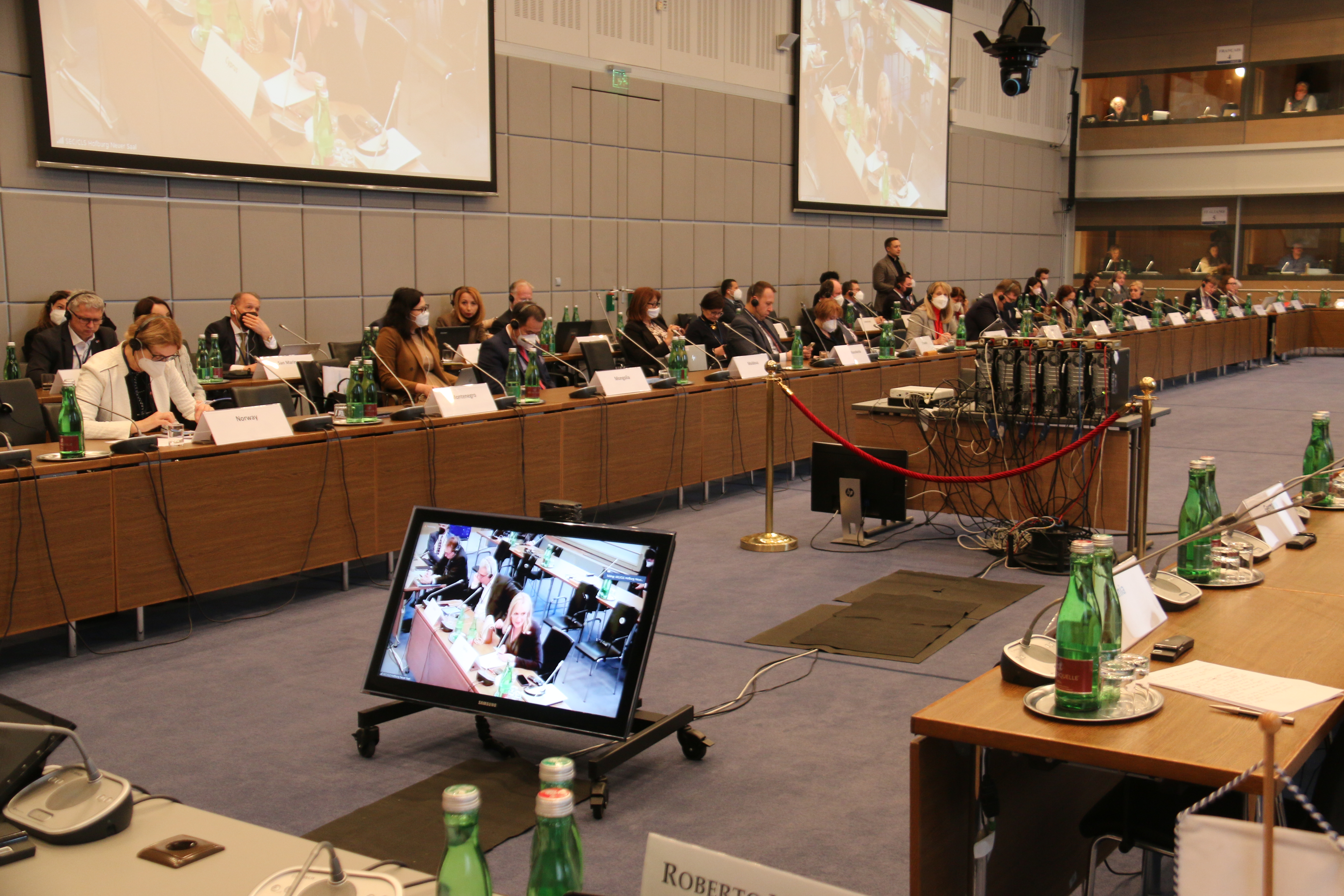Lithuania

HEARING—Deterrence on NATO’s Eastern Flank
Nov 17, 2025Russell Senate Office Building Room 222 Stream live here Russia’s recent incursions in Estonian, Lithuanian, Polish, and Romanian airspace are part of a campaign to probe for weaknesses along […]

Deterrence on NATO’s Eastern Flank
Nov 17, 2025Russia’s incursions in Estonian, Lithuanian, Polish, and Romanian airspace are part of a campaign to probe for weaknesses along NATO’s eastern flank. With these actions, Moscow aims to gather real-time […]

Senator Wicker and Senator Shaheen Introduce Biparti...
Sep 19, 2025Today, U.S. Helsinki Commission Chairman Senator Roger Wicker, R-Miss., and Commissioner Senator Jeanne Shaheen, D-N.H., introduced the Eastern Flank Strategic Partnership Act of 2025. The legislation establishes it as U.S. […]

BRIEFING – Contesting Russia: Lessons from Cen...
Oct 23, 2024Cannon House Office Building, Room 210 Stream live here For years, the countries of Central & Eastern Europe have been a critical warning system for the rest of Europe, sounding […]

35 Years After the Baltic Way: Regional Unity in the...
Aug 23, 2024On August 23, 1989, approximately two million people created a human chain from Tallinn to Vilnius to peacefully demonstrate their resistance to Soviet occupation. Held on the 50th anniversary of […]

European Energy Security Post-Russia
Jun 07, 2022Russia is weaponizing energy to prolong its unlawful invasion of Ukraine. Unfortunately, the sanctions that Europe and the United States have put in place have not been enough to curb […]
European Energy Security Focus of Upcoming Helsinki ...
Jun 02, 2022WASHINGTON—The Commission on Security and Cooperation in Europe, also known as the Helsinki Commission, today announced the following hearing: EUROPEAN ENERGY SECURITY POST-RUSSIA Tuesday, June 7, 2022 2:30 p.m. Watch […]
Helsinki Commission Digital Digest March 2022
Mar 31, 2022
“Game-Changer”
Mar 17, 2022Russian dictator Vladimir Putin’s invasion of Ukraine has destroyed the international framework that has kept the peace in Europe since 1945, at a time when Baltic states Lithuania, Estonia, and […]
Helsinki Commission Recognizes Key Contributions fro...
Mar 08, 2022WASHINGTON—In light of Russia’s continued criminal war on the peaceful citizens of Ukraine, Helsinki Commission Chairman Sen. Ben Cardin (MD), Co-Chairman Rep. Steve Cohen (TN-09), Ranking Member Sen. Roger Wicker […]

At OSCE PA Winter Meeting, U.S. Legislators Unite wi...
Mar 07, 2022By Ryn Hintz, Max Kampelman Fellow From February 20 – 26, 2022, Helsinki Commission Co-Chairman Rep. Steve Cohen (TN-09) led a bipartisan Congressional delegation to the Winter Meeting of the […]
Foreign Affairs Committee Chairs of Lithuania, Eston...
Mar 07, 2022WASHINGTON—The Commission on Security and Cooperation in Europe, also known as the Helsinki Commission, today announced the following hearing: “GAME-CHANGER” The Baltics Under Pressure Thursday, March 17, 2022 10:00 a.m. […]
